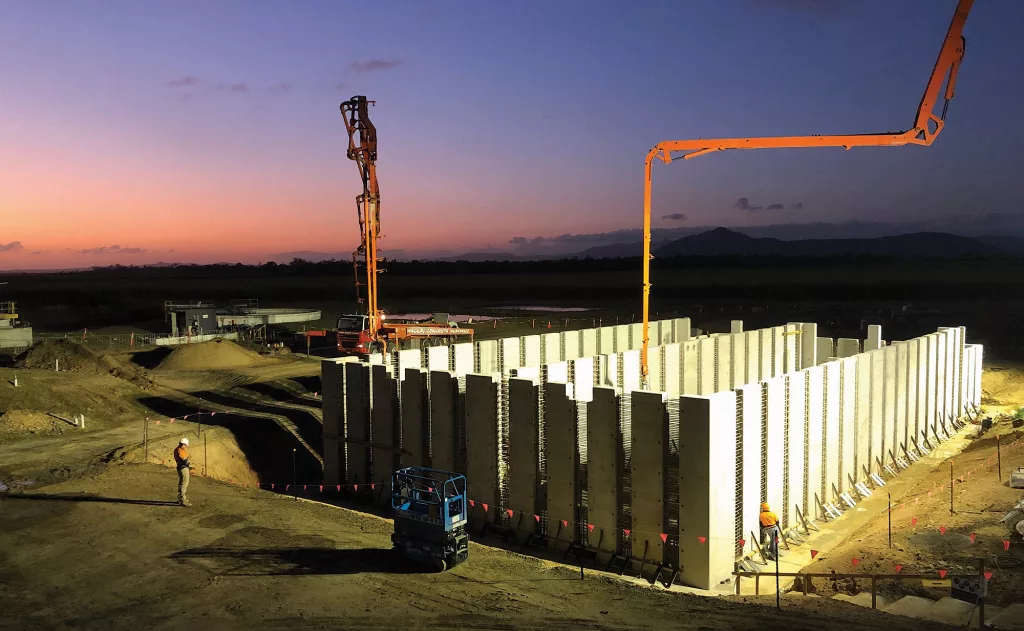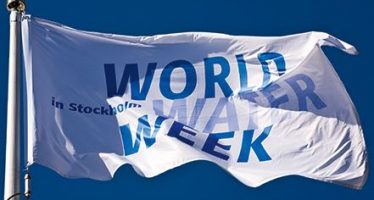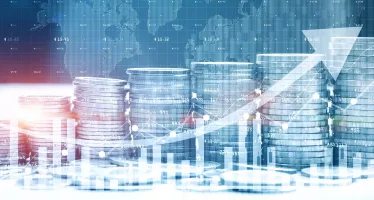Generational Call-to-Arms in the Fight to Save Our World
An Irish group puts into words the unspoken fears of a global population, and turns buzzwords into direct action.
Environmental services and technology business FLI Global is ready to take on the world — or its problems, anyway.

This water-treatment plant provides a fine example of FLI Precast’s design and manufacture capabilities. The tank was shipped from Ireland to Queensland in Australia, then transported by road to Mirani, some 1,000km inland. The structure was erected on-site, under FLI Project Management supervision, in just three weeks. The client had been seeking alternatives to in-situ concrete construction, which would have involved the associated costs of setting up a project camp in the remote location. Transporting the tank by sea and road created a lower carbon footprint than building an in-situ alternative, as well as considerable financial savings. This semi-precast system is unique to FLI Precast, a subsidiary of FLI Global. The concrete contains 70% GGBS thereby reducing the carbon footprint by the same amount.
The firm, headquartered in Waterford, Ireland, specialises in providing solutions wherever air, land, or water is threatened or in need of protection.
Building climate resilience and resistance are frequently heard terms just lately, and even those who have figuratively been living under a rock should have concerns about extreme weather events. Storms, droughts and floods wipe out crops. Temperatures are rising, and frequent deluges have disrupted food production and supply chains.
The damage isn’t limited to agriculture; there has been damage to housing and roads — and the loss of economic opportunities in some regions of the world. Especially in those whose people can least afford it: island nations, and in Africa and Asia. These areas of the world are bearing the brunt of climate change — while high-income Western countries are driving up greenhouse gas emissions.
We, in the developed world, have knowingly abused Nature for more than a century. Now, it’s time to take responsibility for that, and reverse the damage caused by our actions. “Progress” has been unstoppable; our transport systems have moved from horse and cart and bicycle to car, trains and aeroplanes.
Our ease of movement across the planet has contributed to population growth, with more than eight billion of us now… and a predicted nine billion by 2050. Oil and mining have created untold wealth — for some — in the past 150 years. These materials are more than resources to be exploited; they are finite, and were created by Nature.
The industrial revolution and the spectacular advances that followed have benefitted education, science, the arts, engineering, medical and tech advances, food production, healthcare and longevity. Personal and corporate wealth have burgeoned, too. And all these things have come with a dire cost to the natural world. The global imbalance in population growth and poverty can be directly connected to locating and mining oil and ore. We humans have taken much more than we have given back.
Our exploitation can no longer be sustained, the damage can’t go on. Each of us is now responsible — and individuals and corporations must be held accountable. The time to face up to our responsibilities and do what we can to get our world back into balance is now.
This is where building climate resilience provides us with an opportunity. The United Nations’ Global Climate Action plan has created a vision statement for all to follow.
By 2050, our world is likely to be at least 1.5 degrees warmer than it should. Countries, cities, companies, and communities continue to strive for economic security in the face of the multiple risks posed by climate change.
The FLI Group businesses, management and staff, can see the writing on the wall. They are focused on playing a part in decarbonisation. The group’s engineers and project managers make a difference where they can, and they want their knowledge and expertise to be fully utilised in finding sustainable solutions.
The FLI Group has the skills, expertise, abilities, and technologies to improve water management and wastewater treatment, rainwater harvesting, and process water re-use. Also within its scope and remit are brownfield, landfill and groundwater remediation, air quality management and the production of low-carbon precast concrete infrastructure.
The group also has the capacity and ability to help the world with rapid housebuilding, data storage, fibreoptic cabling, wind power, and coastal protection.
Action must come from individuals and corporations, and needs to focus on the crucial sectors most impacted. The future of the planet depends on it. In the group’s focus are agriculture and food-production sectors, city infrastructure, and services including waste management, energy generation and transport.
Nature’s terrestrial and marine ecosystems take the brunt of the destruction — and are the first line of defence against climate risks and disasters. The quality of air, land and water must be prioritised in balancing human impact on the natural world.
The Marrakech Partnership helped to create the UN’s Global Action Plan, which states that urgent and coherent management measures, accompanied by mitigation actions, must be adopted by public, private, and community actors. Only with direct action can there be a transition to an inclusive, resilient, and sustainable world. It’s imperative to protect the most vulnerable sections of the population, many of whom live in under-developed countries and island states.
The steps to success here include increased awareness and advocacy, risk assessments, and appropriate actions to mobilise resources — financing, monitoring, measuring and tracking progress. Last, but not least, we must share knowledge, experience and expertise.
Decarbonisation is a key element in addressing climate change damage, but a macro-view shows we can never achieve a carbon-free planet. What we can achieve is balance, where carbon production is able to be absorbed by the natural world.
We as humans have the ability, the wherewithal, and the responsibility to reverse the damage caused to our environment and to help create a better world for all, not least those yet to be born. We all need to be accountable for our actions. Let’s embrace the challenge.
For more information on Marrakech Partnership for Global Climate Action, please visit unfccc.int/climate-action/marrakech-partnership-for-global-climate-action
More information on precast concrete solutions: fliprecast.com | fli-group.com
You may have an interest in also reading…
Revamping the Gezira Scheme: Sudan Seeks Food Security with Rice
A single grain of rice can tip the scale. It may also contribute to the realisation of food security in
World Water Week Seeks Solutions to Water and Energy Challenges
Water is needed in almost all energy generation processes. At the same time, the water sector needs energy to extract,
Daily Challenges of a Matchmaker: Linking the Benevolent with the World’s Most Deserving Projects
Club10mPlus is a London-based investment club seeking ethical investors for projects that benefit people and planet — and Relationship Director
















































































